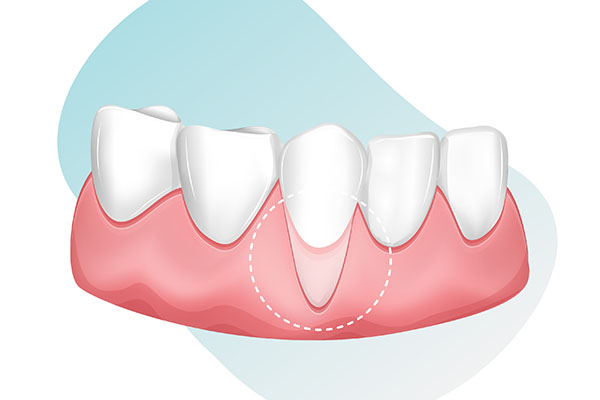 Are you concerned about receding gums? Read on to learn about the most common causes for this condition. It is important to understand the common causes of receding gums as they are the most notable risk factors of periodontal disease that leads to gum recession. By understanding these risks, you can take the necessary preventive action to protect your smile, the health of your gums, and your overall health.
Are you concerned about receding gums? Read on to learn about the most common causes for this condition. It is important to understand the common causes of receding gums as they are the most notable risk factors of periodontal disease that leads to gum recession. By understanding these risks, you can take the necessary preventive action to protect your smile, the health of your gums, and your overall health.
Here are the most common causes of receding gums
The most common causes of receding gums are poor oral hygiene, high consumption of sugar (as well as other carbohydrates), tobacco products, brushing the gums too hard, and irregular cleaning and check-up visits. In some cases, hereditary or general health factors (such as diabetes) could put the person at an increased risk, as well.
Poor oral hygiene
When a dental professional refers to the term oral hygiene, they are often describing the quality of care in between cleaning visits. Protecting teeth and periodontal health involves brushing, flossing, and regularly using mouthwash. Otherwise, there can be a build-up of plaque and tartar on the surface of teeth and along the gum line, resulting in issues such as receding gums.
High consumption of sugar
A person’s diet also plays a major role in the overall status of their periodontal health. Specifically, consuming an excessive amount of sugar and other refined carbohydrates can contribute to the onset of periodontal disease and receding gums that result from the disease. Sugar can combine with bacteria and damage the teeth and gums through acidic reactions. Consequently, it is important to limit sugar consumption and practice good oral hygiene after consuming sugar.
Tobacco products
Most people are familiar with the negative general health effects of tobacco products. Dentists recognize the broader concern, but they specifically recommend patients stay away from the use of tobacco products to reduce the risk of oral health concerns such as gum disease, which could lead to gum recession.
Brushing the gums too hard
Although it is not as common of a cause, sometimes the cause of receding gums is brushing the gums excessively. If you feel as if you take great care of your gum health but are still experiencing gum recession, then the cause could be excessive brushing of the gums. To be safe, it is still encouraged to schedule a dental visit if this is the most likely cause.
Irregular check-up and cleaning visits
Check-up and cleaning visits are for patients with relatively healthy gums and teeth. The purpose of these visits is to identify potential gum concerns (such as receding gums) early and treat them in a less invasive manner before the concern worsens. Dental cleanings are encouraged two to three times every year.
The bottom line
Good oral hygiene includes caring for teeth at home as well as scheduling regular cleaning visits once every four to six months. If you are due for your next check-up and cleaning, then contact our dental practice today to find an appointment time that works for you.
Request an appointment or call Texas Implant & Dental Specialists at 972-535-6555 for an appointment in our Plano office.
Related Posts
One essential step a person can take to prevent receding gums is to maintain excellent dental hygiene. Most individuals often neglect their gums and focus on dazzling, pearly white teeth when it comes to oral health. However, having healthy gums is just as important as having healthy teeth.Gum recession has the potential to cause tooth…
Receding gums can affect your confidence and leave you feeling self-conscious, even when you have every reason to smile. Luckily, a dentist can correct gum recession and its root cause. They can craft treatment plans that best suit their patients’ needs. A treatment plan will include one or more procedures to restore the looks and…
The primary way receding gums are treated is through a gum graft. This procedure involves taking soft tissue from another area and placing it where the recession has occurred. This guide provides tips on how to recover after a gum graft for receding gum treatment.You can help ensure a smooth and fast recovery after receding…
